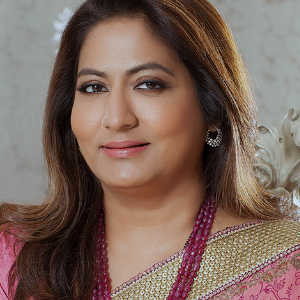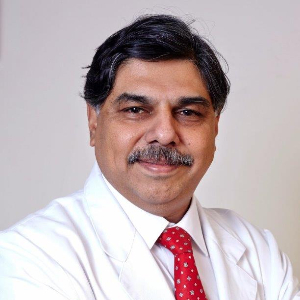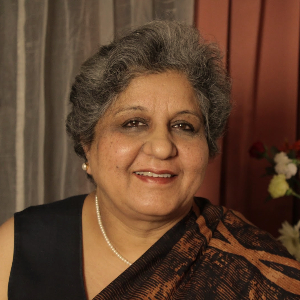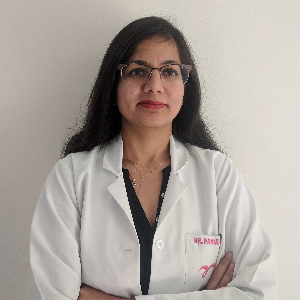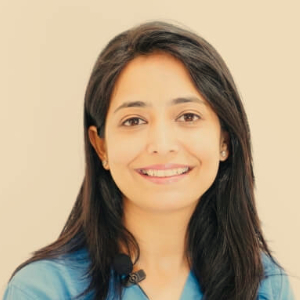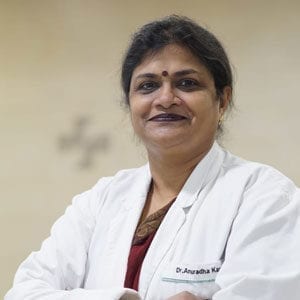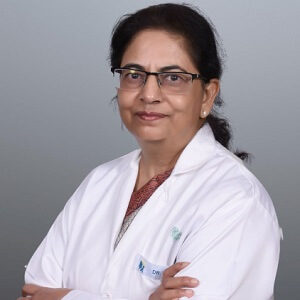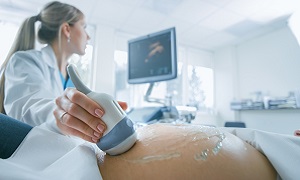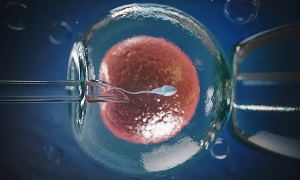Best Doctors in India for Infertility Treatment
- IVF Specialist & Gynaecologist, Gurugram, India
- Over 30 years’ experience
- Fortis Bloom IVF Gurgaon, Lilavati Hospital & Research Centre
Profile Highlights:
- With over 3 decades of vast experience, Dr. Nandita Palshetkar is a pioneering force in reproductive medicine and the founder and Medical Director of the acclaimed Bloom IVF Group.
- With training in IVF and Micromanipulation from the University of Ghent, Belgium, Dr. Nandita Palshetkar has helped more than 25,000 couples to start a family. She along with her team of experts performs more than 3000 ART cycles every year.
- Dr. Palshetkar has been working toward making IVF treatment more affordable and cost-effective to the general public so as to allow people who dream of a child to make it a reality.
- Being one of the most experienced and knowledgeable IVF and fertility experts in the country, she has established several techniques of ART in India and has also been greatly recognized and appreciated for the same.
- IVF Specialist & Gynecologist, Gurugram, India
- Over 40 years’ experience
- Fortis Bloom IVF Gurgaon, Lilavati Hospital & Research Centre
Profile Highlights:
- Dr. Hrishikesh Pai is a leading figure in the field of reproductive medicine, with over 40 years of distinguished experience in Obstetrics, Gynecology, and Infertility.
- He is renowned for his expertise in IVF (In Vitro Fertilization) and has successfully handled thousands of cases throughout his career.
- Other than IVF, his specialization lies in Gynecology, Infertility, Endoscopy, Fertility Preservation, and Genetics.
- As the Founder and Director of Bloom IVF Group, Dr. Pai oversees a network of eight IVF centers across India, including locations in Mumbai, Navi Mumbai, Delhi, Gurugram, and Mohali.
- He is also associated with Lilavati Hospital in Mumbai as a Consultant Gynecologist.
- IVF Expert & Gynecologist, New Delhi, India
- Over 20 years’ experience
- Advanced Fertility and Gynecology Center New Delhi
Profile Highlights:
- Dr. Kaberi Banerjee is a renowned Gynecologist in Delhi and one of the leading infertility and IVF specialists in India.
- She holds over 20 years of experience in gynecology and obstetrics and has over a decade of experience and extensive training in IVF and infertility management and treatment.
- Along with her team of embryologists and experts, Dr. Banerjee has helped over 10,000 pregnancies through ART (Assisted Reproductive Technique).
- Her areas of expertise include IVF, failed IVF cycles, ICSI (Intracytoplasmic Sperm Injection), egg donation, and surrogacy.
- IVF Specialist & Gynaecologist, New Delhi, India
- Over 30 years’ experience
- Southend Fertility and IVF Centre New Delhi
Profile Highlights:
- Dr. Malik is one of the pioneers in the field of infertility in India.
- A veteran obstetrician and gynaecologist with specialization in Assisted Reproductive Technology (ART) & IVF, she has always dreamt of helping people and fulfilling their dream of having their own child.
- Dr. Malik holds an M.B.B.S, DGO and an MD degree from Maharishi Dayanand University, Rohtak.
- IVF Specialist & Gynaecologist, New Delhi, India
- Over 20 years’ experience
- ART Fertility Clinic New Delhi
Profile Highlights:
- Dr. Parul Katiyar is a well-known Obstetrician and Gynecologist in India with expertise in Reproductive medicine and the management of infertility.
- She has close to 2 decades of experience in gynecology and obstetrics and over a decade of experience in infertility and IVF. She provides services for the management of primary and secondary infertility in couples.
- She is experienced in all types of assisted reproductive techniques and has been part of and has assisted in more than 3000 ART cycles of all forms for patients from various parts of the world.
- IVF Specialist & Gynaecologist, New Delhi, India
- Over 24 years’ experience
- Fortis La Femme New Delhi
Profile Highlights:
- Dr. Sunita Arora is a distinguished Infertility Specialist based in New Delhi, renowned for her expertise in endoscopic surgeries and infertility treatments.
- With a deep commitment to providing personalized care, Dr. Arora specializes in advanced infertility treatments including In Vitro Fertilization (IVF) and Intra Uterine Insemination (IUI).
- Dr. Arora holds an MBBS and MD and is widely recognized for her dedication to advancing the field of reproductive medicine.
- IVF Specialist, Gynaecologist & Obstetrician; Mumbai, India
- Over 10 years’ experience
- Nova IVI Fertility Mumbai
Profile Highlights:
- Dr. Ritu Hinduja is a renowned Infertility expert in Mumbai with experience in the management of infertility and reproductive medicine and has training in all assisted reproduction techniques (ART).
- She holds a Masters degree in Reproductive Medicine and also has a Diploma in the same field from Keil University in Germany.
- Dr. Hinduja’s primary interest lies in the management of patients with fertility issues that include low ovarian reserve and preserving fertility for cancer patients and women who want to delay childbearing by freezing eggs.
- Top Obstetrician & Gynaecologist | Max Hospital, Saket, New Delhi, India
- 33+ Years Experience
- Max Super Specialty Hospital, Saket, New Delhi
Profile Highlights:
- Dr. Anuradha Kapur, Principal Director and Head of Unit in Obstetrics & Gynaecology at Max Healthcare, brings over 33 years of unparalleled expertise in her field.
- A product of Maulana Azad Medical College, Delhi, Dr. Kapur holds an MD and an MBBS from this esteemed institution.
- With a distinguished career dedicated to women’s health, Dr. Kapur is recognized for her exceptional skills in managing high-risk obstetrical and gynecological cases, a specialization honed through more than 30 years of post-MD experience.
- IVF Specialist & Gynaecologist, Gurugram, India
- Over 20 years’ experience
- Cloudnine Hospital, Gurugram
Profile Highlights:
- Dr. Meenu Handa is a reputed gynecologist, obstetrician, and IVF specialist, who is currently practicing as the Clinical Head of IVF at Cloudnine Fertility- IVF Centre in Gurugram.
- She has previously also served as the Unit Head of the Fortis Bloom IVF Centre at Fortis Memorial Research Institute, Gurugram.
- Her areas of expertise encompass a variety of treatments, including male infertility, recurrent IVF specialties, intracytoplasmic sperm injection, and endoscopic fertility surgeries.
- Top Obstetrician & Gynaecologist | Apollo Hospital, New Delhi, India
- 22+ Years Experience
- Indraprastha Apollo Hospital, New Delhi
Profile Highlights:
- Dr. Sohani Verma is a well-known Gynecologist and Obstetrician in India, with approximately 22 years of experience in numerous treatments in these disciplines. Dr. Verma serves as a senior consultant at Indraprastha Apollo Hospitals.
- She specializes in infertility and IVF treatments, and she also founded a sperm bank in the hospital in 2002. She has 22 years of IVF and infertility experience in the UK and India.
- Dr. Sohani Verma worked as the Academic Coordinator for the Department of Obstetrics and Gynaecology at Indraprastha Apollo Hospitals in New Delhi.
Best Hospitals in India for Infertility Treatment
- City: Gurugram, India
Hospital Highlights:
- One of India’s best and largest multi-specialty hospitals, Medanta was built with the aim to bring India to the highest standards of medical care. The hospital has been providing the best medical services to its patients, since its inception, with care, commitment, and compassion.
- Equipped with 1250 beds, the hospital was founded by Dr. Naresh Trehan in the year 2009 with an aim to provide the best medical care at affordable costs. The hospital is spread across 43 acres and includes 45 operation theatres and 350 beds dedicated solely to ICU. The hospital includes over 800 doctors, and more than 22 specialty departments and has a dedicated floor for individual specialty in order to offer the best services under one roof.
- The hospital is considered one of the premier institutes in India for Cardiac Care and includes staffs and members of high caliber. The hospital has 6 distinct centers of excellence.
- City: Gurugram, India
Hospital Highlights:
- Artemis Hospital, established in 2007 in Gurugram, India, is a leading multi-specialty institution known for its excellence in patient care and advanced medical technology, offering comprehensive services across specialties like Cardiology, Oncology, Neurology, Orthopedics etc.
- Renowned for its patient-focused care, Artemis Hospital combines state-of-the-art infrastructure with a team of internationally trained doctors and surgeons, ensuring the highest standards of medical treatment.
- Accredited by JCI and NABH, Artemis Hospital meets global healthcare quality and safety standards, reflecting its commitment to providing compassionate, personalized care.
- The hospital is recognized for utilizing cutting-edge diagnostic and ther*peutic techniques, ensuring patients receive accurate diagnoses and effective treatments tailored to their needs.
- City: Chennai, India
Hospital Highlights:
- The Apollo Proton Cancer Centre in Chennai is the most sought-after private cancer hospital in India. It is an integrated facility that provides cutting-edge, all inclusive cancer treatment to patients all over the globe.
- The hospital is a part of the renowned Apollo Group which has a large network of over 74 hospitals in India and across the globe. Out of the 74 hospitals, 21 of them are cancer centres. However, Apollo Proton Cancer Centre is the only cancer hospital to have JCI accreditation.
- The Centre, which was established on the principles of excellence and expertise, unites a formidable medical staff led by some of the most illustrious figures in cancer treatment.
- The hospital follows the global ASTRO Model Policy. It is the same global policy which is followed by countries like USA, UK, and Europe.
- Apollo Proton Cancer Centre is among the very few hospitals in India to receive patients from First World countries such as USA, Canada, New Zealand, Australia, Singapore, Thailand, etc.
- Apart from that, it is also the first hospital in Chennai to receive patients from several countries like Uzbekistan, Kazakhstan, Turkmenistan, Georgia, Armenia, Azerbaijan, SAARC countries (Bangladesh, Nepal, Sri Lanka, Maldives, Bhutan, Afghanistan, and Pakistan), South Africa, Turkey, Egypt, etc.
- In fact, there is a dedicated team at the Apollo Proton Cancer Centre that serves only international patients. Thus, on a monthly basis, the Centre receives patients from across 32 countries.
- Moreover, there are certain treatments in Apollo Proton Cancer Centre that are not available in any other centre. APCC addresses all types of possible cancers that are usually not covered by any other centre.
- City: New Delhi, India
Hospital Highlights:
- Over the last 33 years, the Fortis Escorts Heart Institute has set new standards in cardiac treatment with groundbreaking research. It is now known around the world as a centre of expertise for Cardiac Bypass Surgery, Interventional Cardiology, Non-invasive Cardiology, Paediatric Cardiology, and Paediatric Cardiac Surgery.
- The hospital has cutting-edge laboratories that perform a wide range of diagnostic tests in Nuclear Medicine, Radiology, Biochemistry, Haematology, Transfusion Medicine, and Microbiology.
- Fortis Escorts Heart Institute boasts a diverse group of bright and experienced doctors who are backed up by a team of highly qualified, experienced, and devoted support professionals as well as cutting-edge equipment such as the recently installed Dual CT Scan.
- Approximately 200 cardiac doctors and 1600 personnel currently collaborate to manage over 14,500 admissions and 7,200 emergency situations each year. The hospital now has a 310-bed infrastructure, as well as five cath labs and a slew of other world-class amenities.
- City: Gurugram, India
Hospital Highlights:
- Fortis Memorial Research Institute (FMRI) is a premier multi-super-specialty, quaternary care hospital, known for its exceptional international faculty, top-tier clinicians, super-sub-specialists, and specialized nurses, all supported by cutting-edge technology.
- It is the flaship hospital of Fortis Healthcare Limited, part of IHH Healthcare Berhad, a leading integrated healthcare services provider in India. As one of the country’s largest healthcare organizations, Fortis operates 28 healthcare facilities with over 4,500 operational beds (including O&M facilities) and more than 400 diagnostic centers (including joint ventures).
- Recognized as one of the top hospitals in India, FMRI serves as a leading referral center and aspires to be the ‘Mecca of Healthcare’ for India and beyond. Its 11-acre campus is a testament to its commitment to providing world-class healthcare.
- Accredited by JCI and NABH, FMRI is dedicated to maintaining the highest standards of healthcare quality and safety, ensuring that every patient receives the best possible care. The hospital’s reputation is further enhanced by its state-of-the-art facilities and innovative medical practices.
- City: New Delhi, India
Hospital Highlights:
- The Indian Spinal Injuries Center (ISIC), provides state-of-the-art facilities for the management of all types of spinal ailments.
- Staffed with internationally trained, acclaimed, and dedicated spine surgeons, the hospital provides cutting-edge medical & surgical technology. The hospital provides comprehensive management of spinal injury, back pain, spinal deformities, tumors, osteoporosis, etc.
- The hospital performs motion-preserving spine surgeries including disc replacement and dynamic fixation, and minimally invasive spine surgeries such as endoscopic disc excision.
- The orthopedic service of the hospital covers all orthopedic ailments including trauma, joint diseases & replacements, oncology, pediatric orthopedics & upper limb ailment.
- City: Faridabad
Hospital Highlights:
In the sprawling city of Faridabad, where healthcare needs are diverse and ever-evolving, one institution has consistently stood out as a beacon of excellence in the field of medicine—Marengo Asia Hospital. Established with a vision to provide world-class healthcare services to the community it serves, Marengo Asia Hospital has emerged as a trusted name synonymous with quality, compassion, and innovation in healthcare.
- City: New Delhi, India
Hospital Highlights:
- Indraprastha Apollo Hospital is a 700-bedded multispecialty hospital in the heart of the capital of India. It is a part of Apollo Hospital group, one of India’s most reputed healthcare chains. Indraprastha Apollo Hospital has been accredited by Joint Commission International, making it the first internationally accredited hospital in the country in 2005.
- There are 52 specialties in the hospital with one of the best cardiology centers in the country. The hospital is also equipped with State of the art infrastructure facilities with the largest Sleep Lab in Asia and the largest number of ICU bed facilities in India.
- The latest and highly advanced technologies that are installed in the hospital include Da Vinci Robotic Surgery System, PET-MR, PET-CT, Cobalt-based HDR, Brain Lab Navigation System, Tilting MRI, Portable CT scanner, 3 Tesla MRI, 128 Slice CT scanner, DSA Lab, Endosonography, Hyperbaric Chamber and Fibro scan.
- City: New Delhi, India
Hospital Highlights:
- One of the well-regarded providers in India committed to the highest standards of clinical excellence and patient care, Max Super Specialty Hospital is a part of Max Healthcare, which is the second-largest healthcare chain in India. Regarded as one of the most well-regarded healthcare providers in the country, Max Super Specialty Hospital is committed to the highest standards of clinical excellence as well as patient care. The hospital is also equipped with the latest technology as well as cutting-edge research. The hospital is known to deliver and ensure the highest level of patient care.
- The hospital has more than 500 beds and offers treatment for over 35 specialties. The hospital also holds the credit of having installed the first Brain Suite in Asia. This is a highly advanced Neurosurgical machine that allows MRI to be taken while surgery is ongoing.
- Other advanced and latest technologies are also installed in the hospital such as the 1.5 Tesla MRI machine, 64 Slice CT Angiography, 4D ECHO, LINAC, and 3.5T MRI machine.
- City: Kolkata, India
Hospital Highlights:
- Founded in 2017, the HCG EKO Cancer Centre is a committed, all-inclusive cancer care facility in Kolkata.
- The hospital was collaboratively established by India’s leading cancer care provider HCG (HealthCare Global Enterprises Ltd.), and EKO Diagnostic Pvt. Ltd., a top diagnostic and imaging chain in Eastern India.
- With 88 beds, the hospital provides a full spectrum of services including diagnosis, prevention, screening, second opinions, treatment, rehabilitation, follow-up, and palliative care.
- Additionally, the hospital contains a day-care chemotherapy ward, Neutropenic ward, medical ICU, pharmacy, blood bank, and an IPD wing.
- At HCG EKO Cancer Centre Kolkata, a large team of cancer experts with experience in medical oncology, surgical oncology, radiation oncology, hemato oncology, BMT, and nuclear medicine collaborate to offer a variety of treatment options under one roof.
- Furthermore, the hospital is also known for employing the most advanced radiation technology such as, the Radixact, a next-generation TomoTherapy equipment that provides greater radiation delivery precision.
Infertility
Infertility is a condition when the female partner is unable to get pregnant, despite multiple attempts. In the US alone, around ten to fifteen percent of couples are known to be infertile.
Infertility may be due to an issue with either you or your partner, or it could also be due to a combination of factors that are preventing pregnancy. However, there are several safe as well as effective therapies that are able to improve your or your partner’s chances of getting pregnant.
Symptoms
Pregnancy not occurring is the main symptom of infertility. Although there are generally no other obvious symptoms, a woman suffering from this condition might have irregular or absent menstrual periods. Men suffering from infertility might also show a few signs such as hormonal problems, changes in hair growth as well as sexual function.
In most cases, couples are able to conceive without any treatment.
For women, you should consider seeing a doctor about infertility issues if you have been unsuccessfully trying to get pregnant for over a year. You might consider seeing your doctor earlier if you:
- Are age 35 or older and have been trying to conceive for six months or longer
- Are over the age of 40
- Have very painful periods
- Have known fertility problems
- Have irregular or absent periods
- Have been diagnosed with conditions such as endometriosis or pelvic inflammatory disease
- Have undergone treatment for cancer
- Have had multiple miscarriages
For men, you should consider seeing a doctor if you have or experience:
- A low sperm count or any other problems with sperm
- A history of testicular, prostate, or sexual problems
- Other members of your family having infertility problems
- Having undergone treatment for cancer
- Small testicles or swelling in your scrotum
Causes of Male Infertility
Generally speaking, in men, infertility is related to the following:
- Effective production of sperm
- Sperm count, or the number of sperm
- Sperm shape
- Movement of the sperm
There are a variety of risk factors as well, related to infertility in men, which include:
- Older age
- Obesity
- Smoking Cigarettes
- Excessive use of alcohol
- Exposure to toxins such as heavy metals, pesticides, and herbicides
Few medical conditions also exist, that can cause male infertility. They include:
- Retrograde ejaculation
- Varicocele, or the veins around your testicles swelling
- Testicles that haven’t descended into your scrotum
- Having antibodies that attack your sperm, eventually destroying them
- A hormonal imbalance, such as low production of testosterone
Various medications and drugs are also there, which lead to male fertility. They include:
- Chemotherapy or radiation therapy, which are cancer treatments
- Medication which is used for rheumatoid arthritis (RA) or ulcerative colitis (UC)
- Recreational drugs like marijuana and cocaine
- Anabolic steroids, which can help in improved athletic performance or hormonal issues like delayed puberty
- Calcium channel blockers used for high blood pressure
- Tricyclic antidepressants
Causes of Female Infertility
Various factors can lead to female infertility, which can affect or interfere with the following biological processes:
- Ovulation, which occurs when the mature egg is released from the ovary
- Fertilization, which occurs when the sperm meets the egg in the fallopian tube after it has traveled through the cervix and uterus
- Implantation, which occurs after a fertilized egg attaches to the lining of the uterus where it is then able to grow as well as develop into a baby
Some of the risk factors for female infertility include: - Increasing age
- Excessive use of alcohol
- Smoking cigarettes
- Being obese, overweight, or significantly underweight
- Sexually transmitted infections
There are also a variety of medical conditions which can lead to infertility, such as:
- Ovulation disorders, which may be caused by hormonal imbalances or polycystic ovary syndrome (PCOS), or pelvic inflammatory disease
- Endometriosis
- Uterine fibroids
- Premature ovarian failure
- Scarring caused by a previous surgery
There are also certain medications as well as drugs which can affect female infertility such as:
- Chemotherapy or radiation therapy
- Antipsychotic medications
- Using high-dosage non-steroidal anti-inflammatory drugs for long-term
- Recreational drugs like cocaine and marijuana
Diagnosis
Before testing for infertility, your doctor or healthcare provider is going to work to understand your sexual habits, and might also make recommendations to help to improve chances of pregnancy. In some infertile couples, sometimes, infertility is unexplained.
It is important to note that evaluation for infertility can be expensive, and sometimes can involve procedures that are uncomfortable. There is also no guarantee that after all the testing and treatment, pregnancy is going to occur.
Tests for men
In order for a man to be fertile, it is important for the testicles to produce healthy sperm, and that the sperm is ejaculated effectively into the vagina, and then travel to the egg. Tests for male infertility generally attempt to determine if any of these processes are impaired.
Some of the tests can include semen analysis, genetic testing, hormone testing, testicular biopsy, imaging as well as any other testing.
Tests for women
For women, fertility relies on the ovaries releasing eggs that are healthy. The reproductive tract must allow the egg to pass into the fallopian tubes, and then join with the sperm, so that the fertilization can take place. Your doctor can recommend a general physical exam, as well as few other tests such as ovulation testing, ovarian reserve testing, imaging tests, etc.
Treatments
If despite multiple attempts, a couple is unable to achieve pregnancy, then treatment is an option. The type of treatment that your doctor might recommend might depend on a variety of factors, such as:
- The cause of infertility, if known
- The overall health of you as well as your partner
- How long you’ve been trying to conceive
- Age
For Men
Male infertility is treatable in various ways, depending on the cause. Generally, surgery, medication and assisted reproductive technology are the main treatment options.
Medications
Surgery
Surgery helps to fix obstructions that prevent sperm from being present in the ejaculation. It might also help in correcting medical conditions such as varicocele. Sometimes, sperm is retrieved from the testicles directly, after which it is used in treatments with assisted reproductive technology.
Assisted reproductive technology
Assisted reproductive technology generally refers to treatments in which eggs and sperm and handled outside the body. It includes treatments such as in vitro fertilization (IVF), sperm injection, or intracytoplasmic sperm.
For Women
Although surgery can be used to treat female infertility as well, it has become quite rare now due to advancements in other fertility treatments. Surgery can improve fertility by:
- Correcting an abnormally shaped uterus
- Removing fibroids
- Unblocking fallopian tubes
Reproductive assistance
Reproductive assistance involves methods such as intrauterine insemination and assisted reproductive technology. Intrauterine insemination involves injecting millions of sperm into a woman’s uterus near the time of ovulation.
IVF
Medications
Prevention
Having regular intercourse several times around the ovulation time can increase the chances of pregnancy. It is also noteworthy that all types of infertility are not preventable.
For men, it is important to avoid using too much tobacco, alcohol, or any such drugs, as well as any medications that can impact fertility. It Is also advisable to avoid high temperatures in hot tubs and hot baths, as well as avoid exposure to any kind of industrial or environmental toxins. Regular exercise can also help in improving sperm quality.
For women, it is important to quit smoking, reduce or stop the intake of alcohol, and also limit caffeine. Regular exercise is also important and can prove to be extremely beneficial.

